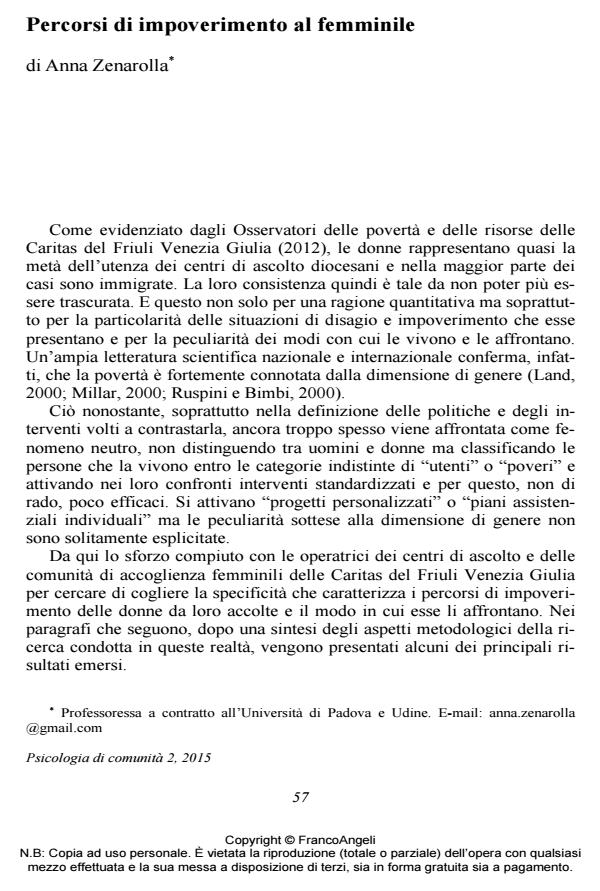Percorsi di impoverimento al femminile
Titolo Rivista PSICOLOGIA DI COMUNITA’
Autori/Curatori Anna Zenarolla
Anno di pubblicazione 2015 Fascicolo 2015/2
Lingua Italiano Numero pagine 14 P. 57-70 Dimensione file 54 KB
DOI 10.3280/PSC2015-002005
Il DOI è il codice a barre della proprietà intellettuale: per saperne di più
clicca qui
Qui sotto puoi vedere in anteprima la prima pagina di questo articolo.
Se questo articolo ti interessa, lo puoi acquistare (e scaricare in formato pdf) seguendo le facili indicazioni per acquistare il download credit. Acquista Download Credits per scaricare questo Articolo in formato PDF

FrancoAngeli è membro della Publishers International Linking Association, Inc (PILA), associazione indipendente e non profit per facilitare (attraverso i servizi tecnologici implementati da CrossRef.org) l’accesso degli studiosi ai contenuti digitali nelle pubblicazioni professionali e scientifiche.
L’articolo si propone di portare l’attenzione sull’importanza di assumere una prospettiva di genere nell’analisi dei fenomeni di povertà evidenziando la specificità assunta dalle loro dinamiche. La riflessione è l’esito di un percorso di ricerca qualitativa che ha approfondito la lettura che le operatrici dei centri di ascolto e delle comunità di accoglienza femminile delle Caritas diocesane del Friuli Venezia Giulia fanno delle situazioni di impoverimento vissute dalle donne utenti dei loro servizi e delle modalità con cui esse le affrontano. I risultati emersi hanno evidenziato l’importanza di assumere tale prospettiva di genere non solo nella fase di analisi ma anche in quella dell’intervento in quanto la sua efficacia è direttamente legata alla capacità di essere calibrato rispetto alle esigenze e potenzialità di ogni singola persona.
Parole chiave:Povertà di genere, immigrazione femminile, resilienza.
Anna Zenarolla, Percorsi di impoverimento al femminile in "PSICOLOGIA DI COMUNITA’" 2/2015, pp 57-70, DOI: 10.3280/PSC2015-002005